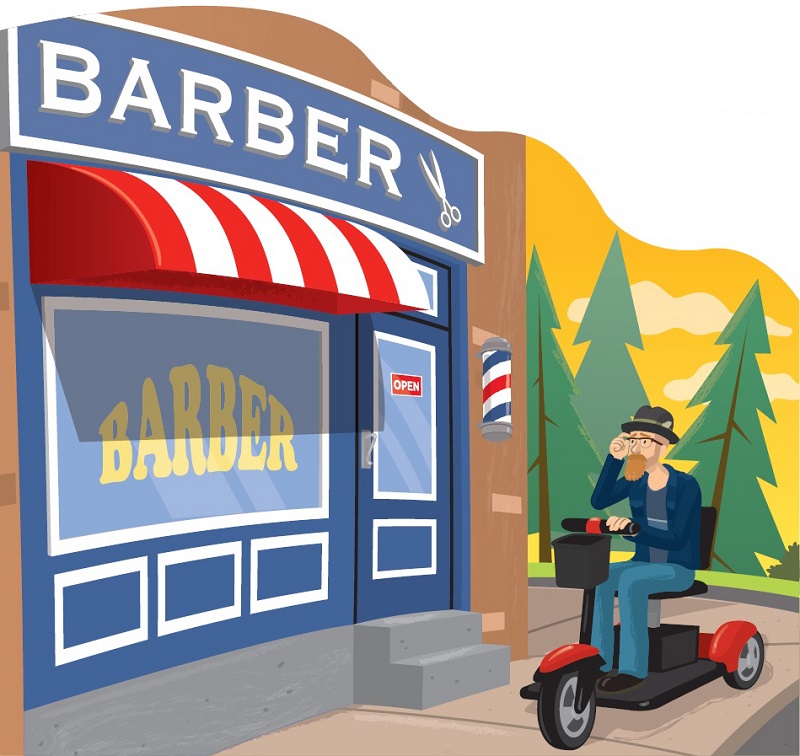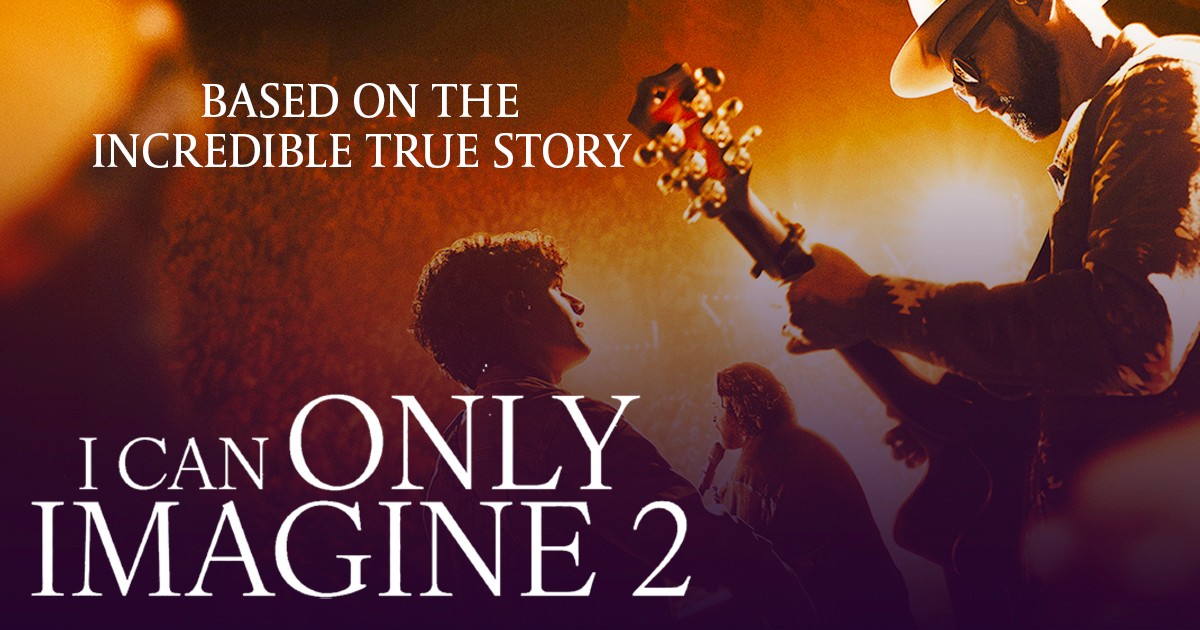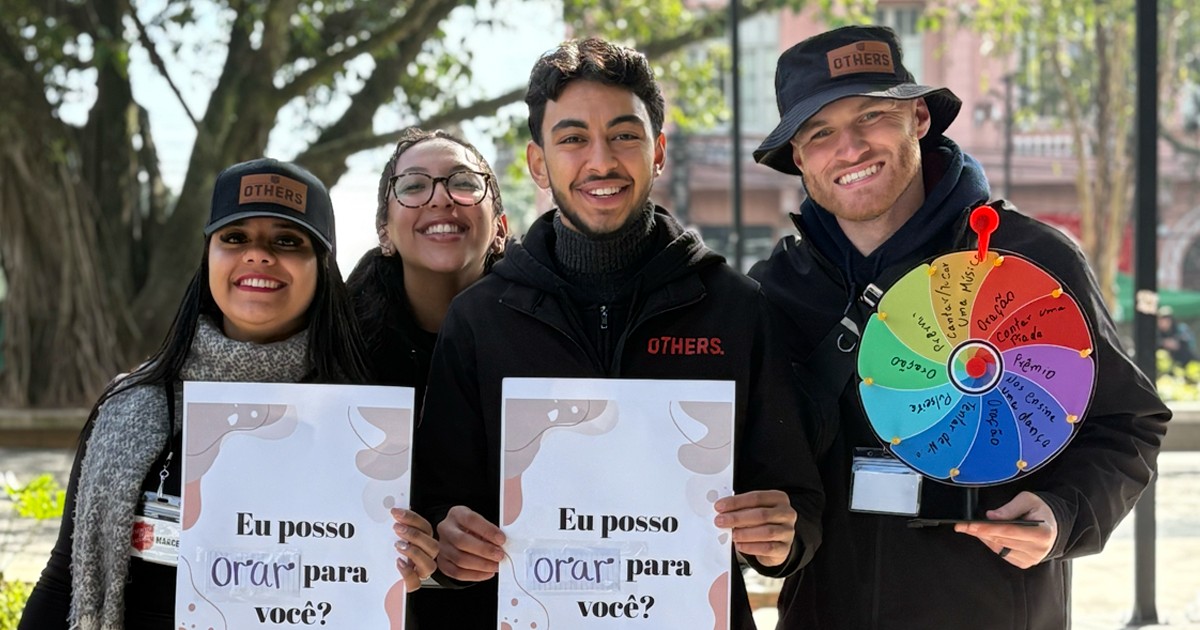Sometimes, it seems like the only testimonies I hear in church are from someone who was an addict or diagnosed with an illness—and then they met Jesus, and were cured.
Even though these stories are often true, they are the exception and not the rule. I’ve grown weary and annoyed by these testimonies, which I’ve come to refer to as “the ones that make the cut.”
What about those who love Jesus but continue to get sicker? Does this mean Jesus loves us less than others? Jean Vanier put it best: “I am struck by how sharing our weakness and difficulties is more nourishing to others than sharing our qualities and successes.” I pray he’s right.
This Could Get Ugly
I was diagnosed with multiple sclerosis (MS) in the summer of 1997, so I’ve been the “sick guy” for more than 20 years. I’ve tried to take the “Jesus way” the whole time but I’ve still struggled because it affects everything in my life. I was engaged to be married when I received my diagnosis, so I told my then fiancée that MS can be ugly and that I wouldn’t hold it against her if she wanted to opt out. Erinn never wavered so we got married in January of the following year and made vows to stick beside each other in sickness and in health. As a married couple, MS has not just been my disease; it is our disease. It affects us both in profound ways and has been an uninvited third party in our relationship the entire time.
My prediction has come true. This disease has gotten ugly. Over the Christmas holidays this past year, I felt a significant decline in my health. On January 25, just one day after our 20th wedding anniversary, we called an ambulance to take me to the hospital because I could not get out of my own bed. I’ve been in a hospital for months now doing rehab and will be away from my home this entire summer while our house is renovated to fit my new needs.
Over the years as I’ve gotten sicker, I’ve had a lot of time to think about issues related to disability. In my work with The Salvation Army’s Toronto Housing and Homeless Supports, I have learned two principles that have carried over into my thinking about disabilities. The first is that we are all people, created in the image of God and therefore beloved. I never talk about homeless people or the homeless, but instead refer to people experiencing homelessness. This puts the emphasis on the personhood of someone; not their homelessness. I have a disability, but I don’t think of myself as a disabled person. I am a person with a disability. My disability does not define me. It is just one of many adjectives that describe my personhood.
The second principle is that there is no such thing as “us and them.” Regardless of our socioeconomic status, ethnic background, gender, sexual orientation, religious beliefs or physical abilities, God loves us all equally. In a perfect world, that kind of unconditional love would be extended between all people, but sadly that is not the case.
I had been a regular customer at a local barber shop for years and especially enjoyed the pampering I received from a straight-blade shave—hot towels, close shave and warm conversation. I’d come to think of it as my little version of a spa treatment, and that I had formed a friendship with the barber. As my mobility decreased and I became dependent on a scooter, I could no longer walk up the steps of the shop and had to find a new place that was accessible. I missed my usual spot, and my friend.
I was scooting by there recently and saw my barber through the window. I rolled up to the door and waved him out so I could explain why I had not been around. I even suggested he could make his shop accessible with a $50 wooden ramp that many local businesses were using. It was then that he said something that surprised and hurt me more than I would have expected. He told me my disability was not his problem and that he would not buy a ramp just for me. I was speechless. I had been wrong to think I mattered to him, not only as a customer but as a fellow human being. He—and so many others—need to understand that there is no “us and them.” We are all in this together.
Susan Palwick, a writer and associate professor at the University of Nevada who struggles with depression and anxiety among other physical issues, puts it better than I ever could. “One of the steepest barriers anyone with any disability faces is the us-them divide that our culture has tried to erect between the disabled and the able, the partial and the perfect, the wounded and the whole…. We are all wounded, all partial, all disabled, just as we are all loved, forgiven, and gifted…. The best thing each of us can do to make the church more welcoming to wounded people is to name and acknowledge our own wounds. Our sensitivity to disabilities needs to be an act not of generosity, but of self-recognition.”
Breaking Barriers
There are four areas of accessibility that would be much better if we took these two principles more seriously.
1. Physical/structural. This is by far the most expensive to overcome, but also the easiest. Ramps, elevators, doors and accessible washrooms are some of the things that are crucial to think about and implement in order for all people to feel welcome. A communal accessibility audit is often the best and quickest way to discover what is needed.
2. Social. The impact of not being able to get to where you want or need to go can’t be overstated. It’s easy to feel socially isolated if a group of people invite me somewhere, and when I ask if it is accessible they say they don’t know but they go there anyway. Overcoming social barriers can be a lifelong venture.
3. Relational. This is often rooted in (mis)perception. Relational accessibility is all about moving beyond the stigma or misunderstanding of a person’s needs and abilities. As is so often the case, and I confess I am guilty of this at times, people can be judged and assumptions made based on outward appearances. For example, if someone is in a wheelchair or just looks different than the majority of people around them, it is possible to assume things about that person without ever knowing a single thing about them. Sometimes people assume that a disability makes a person less able, less talented or less intellectual than everyone else.
4. Theological/spiritual. Brett Webb-Mitchell, a writer and teacher at Duke Divinity School in North Carolina, notes: “In communities of faith we are there, members, identified with the group, not because of what we can or cannot do, but because of who and whose we are: God’s own creation.” The Apostle Paul shares his vision of the body in Ephesians 4:5 when he reminds us that we are all connected by “one Lord, one faith, one baptism.” Again, we are all in this together. There is no “us and them.” In 1 Corinthians 12, Paul reminds us that we all have for the glory of God. If we miss this, we’ve missed the whole point.
Everybody Hurts
I don’t want to over-spiritualize things. I confess that I don’t want to be disabled nor do I understand why God allows some people to struggle more than others. I hate MS. It sucks. However, I do believe that God’s grace is enough, even though it doesn’t always feel that way. When well-meaning people say things intended to help me through my struggle, such as the Christian platitude of “God has a purpose in store for your pain” or “Just trust God and everything will be fine,” I sometimes groan. And the time I was offered a book that outlined some major diseases, MS included, and the sins attached to them, and told that if I could just root out those sins from my life God would and could heal me, I wanted to scream. People who are in pain just need a friend to sit and be with them, not to offer suggestions as to how to “fix” the problem.
It’s a fallen world. Things are broken. Everyone dies. Everyone suffers or will suffer. No one gets out without suffering, though we keep lying to ourselves about this Christian utopia. Jesus didn’t come to eliminate pain but to join us in it. Each of us that are taking the Jesus way needs to recognize that our path involves the cross. It’s gonna hurt.
But the true beauty is that this is not the end of the story. Resurrection is coming.
Dion Oxford is the director of mission integration for Toronto Housing and Homeless Supports.
Feature illustration: Marc Audet/rocket57.com
I Can Only Imagine 2
New movie asks what happens when dreams do come true.
By Diane Stark Faith & FriendsI Can Only Imagine 2, the sequel to the 2018 faith-based film by the same name, offers a look into the next chapter of Bart Millard (John Michael Finley), the frontman for the Christian band MercyMe, and picks up about 15 years later.
New Thrift Store Partnership Makes Donating Easier
The Salvation Army’s National Recycling Operations (NRO) is making it simpler than ever for Ontarians to give back.
NewsThis partnership reflects NRO’s ongoing commitment to innovation, accessibility and environmental responsibility—making it easier than ever for Ontarians to give with purpose, protect the planet and support neighbours in need.
Returning to Our Roots
Is The Salvation Army still a church for the streets?
by Lieutenant Mirna Dirani Opinion & Critical ThoughtThe Salvation Army was founded to serve both worlds—body and soul—but over time, they can feel disconnected. Our corps can become consumed with maintaining programs, buildings and schedules. At the same time, our social service ministries often carry the load of engaging the community. If William Booth walked into one of our corps today, what would he see?










Comment
On Tuesday, May 7, 2019, Dion Oxford said:
On Monday, May 6, 2019, Ray Simms said:
Thank you for your writing gift.
On Sunday, May 5, 2019, marnie shepherd said:
On Saturday, May 4, 2019, Dan Robins. said:
On Friday, May 3, 2019, Julie said:
On Friday, May 3, 2019, Joanne Biggs said:
On Thursday, June 21, 2018, Cat Mullick said:
On Tuesday, June 12, 2018, Pam said:
Leave a Comment